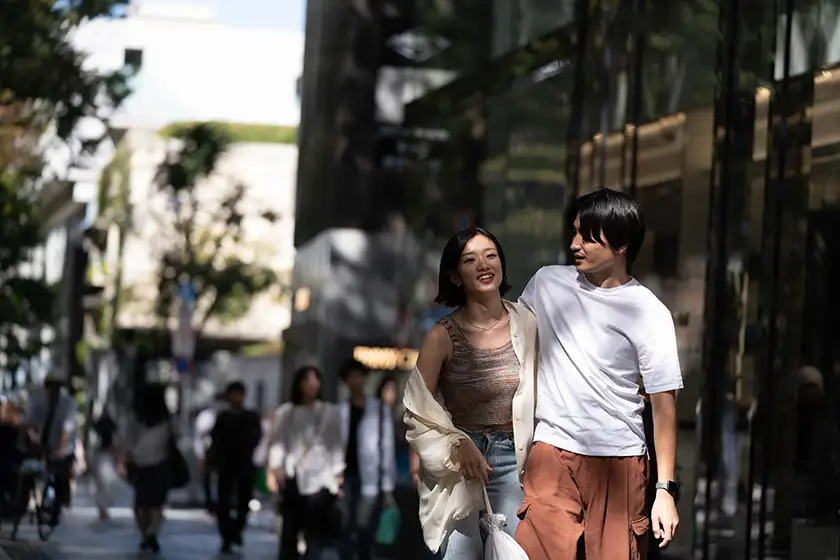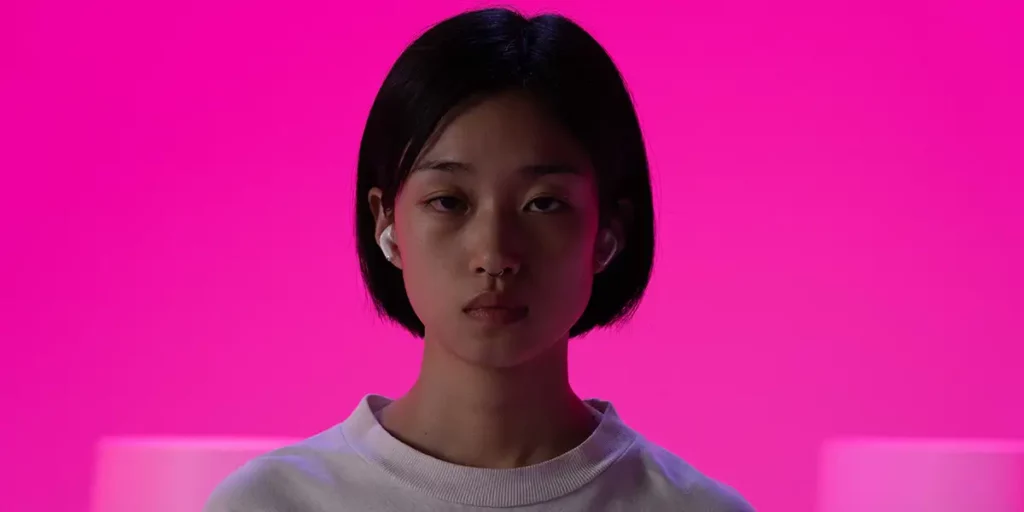With a standout performance from its lead actor, Desert of Namibia is a refreshing if meandering portrait of contemporary Japan.
Director: Yōko Yamanaka
Genre: Drama
Run Time: 137′
Cannes Premiere: May 17, 2024
Release Date: May 16, 2025
The second feature from Japanese director Yōko Yamanaka follows in the footsteps of Frances Ha, Jeune Femme, The Worst Person in the World and countless other indie hits of recent years. Desert of Namibia is a slice-of-life drama from the point of view of a charismatic but lost young woman, navigating modern life in a 21st century metropolis.
This time it’s Tokyo’s turn under the spotlight, as rising star Yuumi Kawai delivers a powerhouse central performance in this portrait of a woman, and perhaps a generation, on the edge.
Twenty-one-year-old Kana lives a chaotic lifestyle in the heart of the Japanese capital. She swings from bar to bar, date to date, boyfriend to boyfriend, all while holding down an unfulfilling job in a hair removal clinic. Her life is paradoxically eventful and empty; the former masks the latter. Similarly, her witty remarks and playful nature form a convincing charade that belies a simmering instability. As we watch Kara begin a new relationship with Daichi Kaneko’s Hayashi, we share in his gradual discovery of a damaged young woman whose journey towards self-knowledge is still in its infancy.
This difficult but compelling protagonist is brought to life spectacularly by Kawai. Her performance oscillates between charismatic humour and devastating inner turmoil; for all the difficulties Kana poses to the people in her life, it’s no mystery that so many are charmed by her. Yamanaka, who also wrote the film, crafts a nuanced character whose bold personality is patent from the opening scene. She is brilliantly funny but juvenile and self-centred too, often at the same time; when a friend tells her that an old classmate has committed suicide, her reaction is to complain about the paper straw in her iced coffee.
Unselfconsciously hedonistic and addicted to convenience, Kana is always consuming: coffee, booze, junk food, or a live stream of the Namibian desert that gives the film its name. When an early major breakdown ends with a fall down some concrete steps, she seems utterly contented to be wheelchair-bound with Hayashi waiting on her hand and foot. This comic self-pity is reminiscent of Kristoffer Borgli’s recent black comedy Sick of Myself, as Kana enjoys her new status as a figure of pity and attention.

She isn’t the only one living such a childlike existence. Despite their almost paternal attitudes towards her, the men in Kana’s life are also lacking in maturity and direction. One of the film’s comic moments sees Kana’s ex-boyfriend Honda fall to his knees in tears in the middle of the street, as she watches on with a smug grin and nothing to say but: ‘you’re so weird.’ Much of the film’s dialogue takes place thus, a dramatic, childish gesture followed by a facetious response. At one point, Honda tells an unconvinced Kana, ‘I’ve learned to understand how you think,’ but its hard to believe that any of these characters can truly know each other when they communicate in such a repressed manner. As Japan’s currently declining birth rate forces its way into the dialogue – some instances more subtle than others – one can see how Kana’s lifestyle might speak to a wider criticism of her generation.
Desert of Namibia takes its time in revealing its hand: beyond mere cultural detritus, Kana’s destructive behaviour may be the result of an undiagnosed mental condition. The film is over two hours long and this development comes a good 45 minutes later than it ought to, but the central performances just about suffice to keep one’s interest throughout a bloated second act. It also looks great; a tight, 4:3 aspect ratio and a series of close-ups keep things suitably uncomfortable as Kana deteriorates, while the film’s lush colour palette and immaculately trendy costuming present a vibrant Tokyo somewhat at odds with the characters’ ennui.
The protagonist of Desert of Namibia is not always easy to like, and with its slow pacing and repetitive narrative, the same could be said of the film itself. Nonetheless, this second feature from Yōko Yamanaka displays a sophisticated visual language and an ability to craft engrossing characters that solidifies her status as one to watch. Factor in Yuumi Kawai’s breathtaking turn as a Gen Z woman exploring the depths of her mental health, and Desert of Namibia offers a refreshing perspective on contemporary Japanese culture rarely seen in cinema.
Desert of Namibia premiered at the Cannes Film Festival on May 17, 2024 and will be released in US theaters on May 16, 2025.

